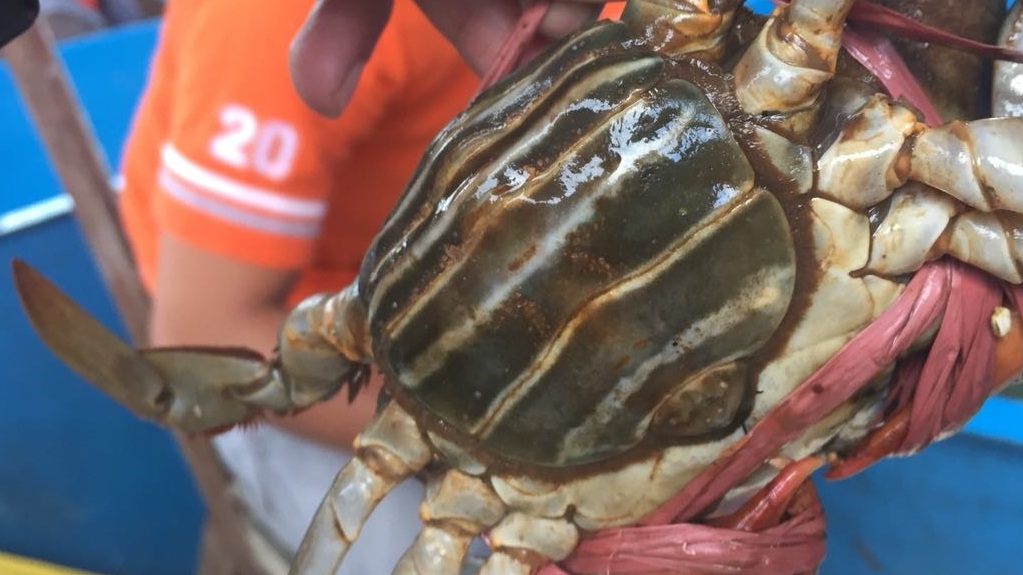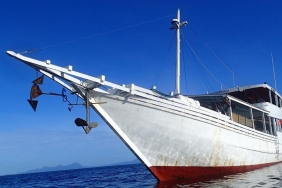JOINT ACTION PLAN TO IMPROVE MANGROVE CRAB FISHERIES IN SOUTHEAST MALUKU
A public consultation on the discussion of the Fisheries Improvement Program (FIP) action plan for mangrove crab commodities in Southeast Maluku Regency was held on January 21, 2021, in the meeting room of the Maluku Province Maritime and Fisheries Service. This activity has agreed on the structure of the fisheries improvement action plan, and is ready to transition fisheries to the Marine Stewardship Council (MSC). The meeting, which was held face-to-face and online, was initiated to follow up on the previous meeting in Southeast Maluku Regency, related to the results of the MSC standard pre-assessment of mangrove crab commodities. The MSC standard pre-assessment was conducted by the Conformity Assessment Body (CAB), namely Bio-Inspecta from Australia, in a series of Fish for Good activities by MSC Indonesia. The public consultation was opened by Abdul Haris, Head of the Marine and Fisheries Service (DKP) of Maluku Province. Abdul Haris emphasized that sustainable fisheries management in accordance with the vision of Maluku Province in 2019-2024, is expected to increase the value of benefits from mangrove crab fisheries for small-scale fishers.
The action plan for improving the mangrove crab fishery was developed based on the results of the pre-assessment, as well as recommendations submitted by the Bio-Inspecta team as an independent assessor. Dr. Besweni, Coordinator of Inland Sea, Territorial and Coastal Waters (LPTPK), Directorate of Fish Resources Management, Ministry of Maritime Affairs and Fisheries, stated that the development of this action plan needs to be synchronized with the results of the recommendations that emerged, while still paying attention to the accuracy in responding to the findings, ease of execution and plausibility to be carried out.
The action plan was developed based on the results of the pre-assessment, as well as the recommendations submitted by the Bio-Inspecta team as independent assessors.
One of the unique features of the mangrove crab fishery in Southeast Maluku is that the fishery or fishery unit is very localized, located on the islands and far from the mainland. This has led the FIP action plan to include some local or community-led management elements, which are expected to be more effective in managing the fishery. One of the local elements is the village approach or customary approach in regulating utilization practices, which of course still pays attention to the existing legal basis. The Forum hopes that this fishery unit can become an example of small-scale fisheries towards MSC ecolabel certification.
As is known, the implementation of FIP cannot be separated from the element of funding. Therefore, all levels of stakeholders need to be involved as a medium to share resources in implementing the action plan. As an initial step of implementation, this forum has agreed to encourage the establishment of a Working Group team at the Maluku Province DKP level. The NWG is expected to focus on the improvement program of mud crab fisheries in Southeast Maluku, through a joint agreement to improve the status of mud crab fisheries towards MSC certification, through the In Transition to MSC (ITM) program. The ITM program, initiated by the MSC team, provides potential funding for FIP implementation for fishery units committed to MSC certification in the future.
Good collaboration from various parties, as well as the utilization of all available resources, is a separate motivation for stakeholders - especially those in Maluku Province - to be able to oversee, pay attention, and increase attention to accelerate the MSC certification process for mud crab commodities in Indonesia.





